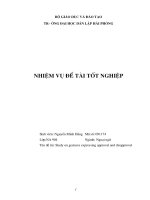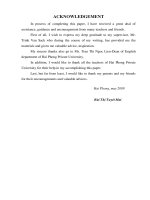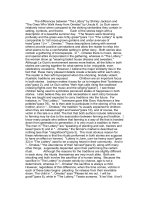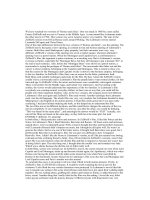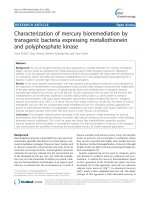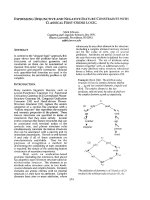Expressing concession and contrast
Bạn đang xem bản rút gọn của tài liệu. Xem và tải ngay bản đầy đủ của tài liệu tại đây (13.1 KB, 2 trang )
Expressing concession and contrast
The same sentence showing concession or contrast can be expressed in several different ways.
Study the examples given below.
She is pretty. She is not popular with men.
The two sentences given above express contrasting ideas. We can connect them in several different ways.
Using though and although
Both
though
and
although
have the same meaning. They can both be used to connect these two clauses.
Although she is pretty
, she is not popular with men.
Though she is pretty
, she is not popular with men.
As and though
As
and
though
can be used in a special structure after an adjective or adverb. In this case, they can both mean
‘although’, and suggest an emphatic contrast.
Pretty though she is
, she is not popular with men.
Pretty as she is
, she is not popular with men.
Using all the same and at the same time
These are discourse markers used to suggest that the second statement contrasts with the first. Note that a
discourse marker does not connect two clauses. They merely show how the ideas are related. In writing, we
separate the two clauses with a semicolon. A full stop is also possible.
She is pretty; all the same, she is not popular with men.
She is pretty; at the same time, she is not popular with men.
Using nonetheless, however and nevertheless
These are also discourse markers and cannot connect two clauses.
She is pretty; nonetheless, she is not popular with men.
She is pretty; however, she is not popular with men.
Using in spite of and despite
In spite of
and
despite
are prepositions.
She is not popular with men
in spite of being
pretty.
She is not popular with men
despite being
pretty.
Note that after
in spite of
and
despite
we use a noun or an
–ing form.
Be first to know when grammar rules change! Sign up to our newsletter here: englishgrammar.org (It's free)
Powered by TCPDF (www.tcpdf.org)

